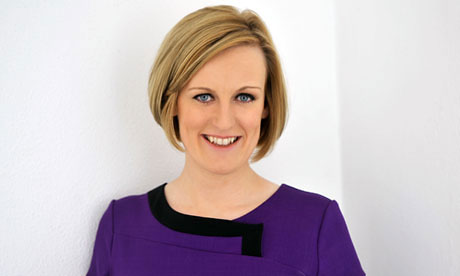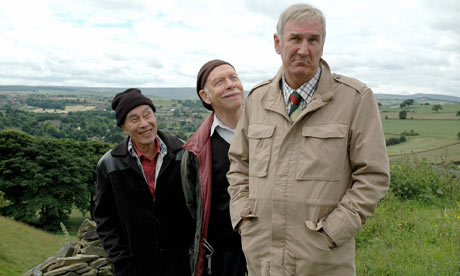https://www.babbel.com/en/magazine/british-accents-yorkshire?bsc=britishaccentsyorkshire-eng&btp=fb&utm_campaign=britishaccentsyorkshire&utm_medium=social&utm_source=facebook&utm_term=organicpost
Representation of Yorkshire
...and regional identity generally. A few resources to help with the OCR AS Media exam.
Saturday, 17 December 2016
Wednesday, 29 April 2015
Bleak Yorkshire humour: I Didn't Know You Cared
If you've never encountered this, it really is quite startling, a stark representation of the dark, bleak sense of humour that writers from these parts often utilise. You can also see the stereotypical signifiers of poverty (working class or 'common'-ness), frugal (or tight-fisted/stingy)ruralness, archaic and old-fashioned (indeed, Victorian and puritanical!), lack of intelligence/backwardsness ...
It doesn't in the case of this sitcom, based on best-selling novels and a radio show, but the Yorkshire stereotype can get downright gothic, as is the case with Wuthering Heights.
You can view more of this show through this search.
It doesn't in the case of this sitcom, based on best-selling novels and a radio show, but the Yorkshire stereotype can get downright gothic, as is the case with Wuthering Heights.
You can view more of this show through this search.
Tuesday, 24 February 2015
Playlist of past/practice clips
You can use these to set yourself practice exercises - feel free to hand in any subsequent essays for marking and feedback:
Wednesday, 17 July 2013
BBC and regional accents
STILL an issue?!
Article source.
Article source.
BBC Breakfast's Stephanie McGovern: I was seen as too common for telly
Business presenter says she received put-downs from some colleagues and abuse from viewers due to her Teesside accent
 |
Stephanie McGovern: said she was told by a BBC manager 'I didn't realise people like you were clever.' Photograph: BBC
|
She has explained the global economic crisis to an audience of millions, but BBC Breakfast's business presenter Stephanie McGovern has said that colleagues treated her as "too common for telly" because of her Teesside accent.
McGovern complained that she regularly received abuse from viewers about her accent and that one BBC manager told her: "I didn't realise people like you were clever."
Tuesday, 7 May 2013
North v South; its grim oop north
This post contains several clips you can use for practice analysis
In any exam extract you're always initially looking for a binary [Levi-Strauss] around which dramatic tension can be built.
Its worth also stressing that you're not just looking for stereotypes but also looking out for countertypes too.
The best exam answers will be able to highlight elements of both in (most examples of) representations - providing you with opportunities to apply some theories/theorists on representation.
The north-south binary is the basic one to look out for, but there are many very distinct regional identities that don't necessarily reflect this: Geordie/Mackem, Scouse, Brummie/Black Country, Bristolian/Cornwall [SW] + Norfolk/E. Anglia [SE] (aha!), Essex, Manc/Lancs, Yorkshire, Cockney, plus London and the SE. There are also national identities of the 4 UK nations.
The northern stereotype is both negative (bleak industrial grim landscape; backwards; poor) and positive (friendly), with aspects such as rural arguable either way.
Likewise, the southern stereotype may include positive attributes of wealth, refinement, beautiful landscape etc, but also haughtiness, aloofness, avarice (greed and obsession with money), lack of community bonds (individualism). Notably, the Cockney stereotype has more in common with the Northern stereotype, with social class arguably the key.
Social class is rarely far from the surface when considering regional identity, with the 'poor' element of the stereotype often to the fore, and this in turn linked in with crassness or lack of refinement, as this ironic 1992 ad for a beer associated with Manchester demonstrates:
Less ironically, more in a brazen way to maximise commercial appeal, UK film companies such as Working Title will often to resort to crude regional stereotypes (see Notting Hill's Spike, or the Scottish character in Wild Child - or the whole of Hot Fuzz!).
Like all of our media (setting aside issues of globalisation), TV is dominated by London-based companies, arguably fuelling the use of regional stereotypes. ITV used to be made up of separate, independent regional companies, but these (UTV aside) are now all owned by a London-based conglomerate (who recently closed production facilities in Leeds, a sign of production moving away from the North?).
Here are a few examples we can consider; 1+2 are of a type you might get in the exam, 3 onwards simply to get you thinking about the concept:
1: Doc Martin
In which our protagonist finds himself amidst backwards non-London types.
Note how he reacts favourably to one lady with a refined accent and bearing, highly suggestive of upper-middle class social status, and talks down to the idiot locals. He is, of course, efficient and, crucially, modern - this backwards place still has a rural identity.
Monday, 7 June 2010
No more Summer Wine
The vintage years of Last of the Summer Wine
Holmfirth comedy comes to an end after 37 years of laughs

Subscribe to:
Posts (Atom)